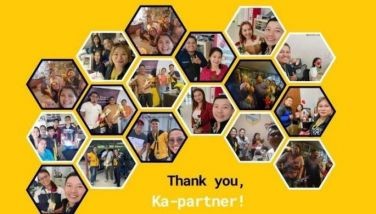Digital must be a force for good in business and life

Digital technology is transforming our professional and personal lives, fast. It links us on social media, opens the world’s knowledge online and builds a shared economy that opens more opportunities for everyone, not to mention the effect of machine learning, artificial intelligence, sensor technologies, and other digital disruptions. Digital is morphing the character of business and corporate behavior and, of course, our lifestyles. And it’s forcing digital businesses to understand their positive impact on society.
Speaking before a leadership conference, Jerry Buhlmann, CEO of Dentsu Aegis Network (DAN), a conglomerate of communication agencies, declared “society” as a formal stakeholder in business, while Nigel Morris, DAN’s chief strategy and innovation officer, underscored the significance of boosting the organization’s societal impact, knowing that “technology on society” is a key focus area for the organization’s thought leadership agenda.
Over the years, many companies, including DAN, have focused on corporate social responsibility (CSR) in how they run their business — with every office, every team, every function and every brand around the world contributing to this agenda. They believe that the next frontier is to build on their great work and widen their ambition on the impact they can make on people and society to deliver more shared digital value. Businesses with the right skills and capabilities must play a role in making this happen and work to shift from a VUCA (volatile, uncertain, complex and ambiguous) world to a more DELI (dynamic, exciting, limitless and instant) one.
So what force will digital have on society? The picture is mixed, but overall positive. The World Economic Forum estimates that digital technology could deliver as much as US$100 trillion in economic value for business and society by 2025 — with society accounting for the lion’s share of that total.
Beyond economic value, digital offers a huge range of other opportunities and benefits for society. The Global e-Sustainability Initiative/Accenture studies reveal these:
1.6 billion people could be connected to e-health services globally in 2030.
Digital technology could help provide better access to education for 450 million people worldwide.
Smart agriculture could reduce food waste by 20 percent in 2030.
Digital solutions could help reduce global oil consumption by 70 percent and carbon emissions by 20 percent in 2030.
An estimated 720,000 lives could be saved from road traffic accidents thanks to connected cars.
But there are challenges, too.
Estimates of job losses as a result of automation vary, with some suggesting as many as two billion jobs could be lost by 2030. While these estimates are disputed, what is clear is that roles will certainly change as machines perform specific tasks, rather than people.
4.2 billion people around the world remain without access to the Internet.
By 2022, women will still only represent about 30 percent of the UK’s digital workforce.
The task now is for businesses and societies as a whole to ensure that the benefits of digital technology are available to as many people as possible.
How can digital drive meaningful change? The most important first step is to recognize and acknowledge society explicitly as a stakeholder in business that should be managed. DAN, for example, started its “digital shared value” journey with its CSR strategy Future Proof, which to date has worked with over 2,650 charities in 63 countries. More than 70 percent of the organization’s manpower complement has spent one working day a year engaging with wider society, unlocking more than one million billable hours for good. Data shows this activity strengthens collaboration, innovation and pride among employees and colleagues.
• Create a digital economy that works for everyone. To be in step with the digital economy, the marching order for companies is to intensify participation in creating more shared value for society. The mandate includes leading the way in terms of increasing access to employment opportunities in the industries where they belong; inspiring a new generation of female entrepreneurs; being in the front line of thought leadership; empowering innovation to create different and better solutions; harnessing data capabilities; and championing confidence building and diversity.
As economies and brands embrace the potential of the digital economy, talent becomes a critical issue, considering the way the digital economy is disrupting traditional approaches to talent and skills development in three key ways: new competencies, new responsibilities, and new cultures.
• Hone skills for the future. First, the digital economy is creating demand for skills so quickly that traditional approaches to education are struggling to keep up. The challenge for educators and businesses alike is the rate of change as well as the uncertainty about the type of skills that will be needed in the future. By one popular estimate, 65 percent of children entering primary school today will ultimately end up working in completely new job types that don’t yet exist. This will place a huge premium on lifelong learning, enabling individuals to up-skill and adapt their careers in response to rapidly changing needs.
• Equip society. As diversity is a key driver of innovation, businesses will need to work harder to ensure they have the right mix of backgrounds, mindsets and styles to spark truly transformative thinking.
• Foster the right culture. Strong and enduring values will be even more important in a digital future, bringing people together and providing guidance on the behaviors, actions and mindsets needed to achieve the vision.
Klaus Schwab, founder and executive director of the World Economic Forum, said, “Today, we have a window of opportunity. We live at a time where the norms, values and regulations of technological systems of the Fourth Industrial Revolution are being established. We must not lose the chance to ensure that these systems are thoughtfully aligned with the kind of open, inclusive, prosperous and dynamic world that we want to live in.”
* * *
Email bongosorio@gmail.com for comments, questions or suggestions. Thank you for communicating.



















